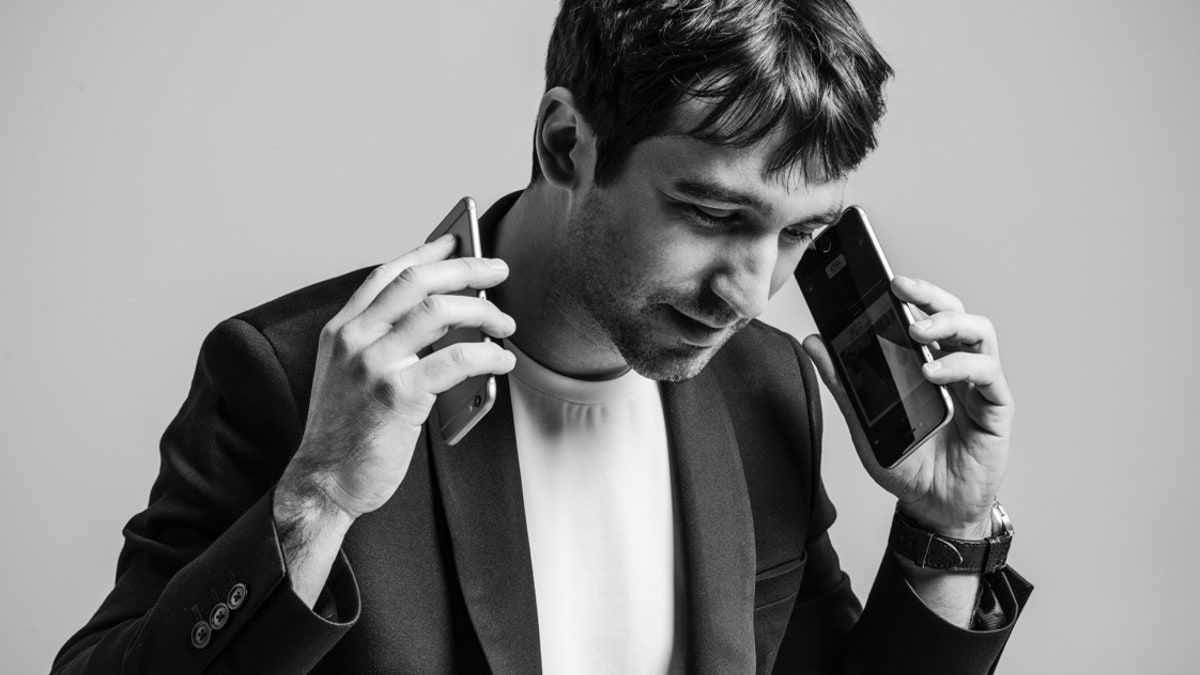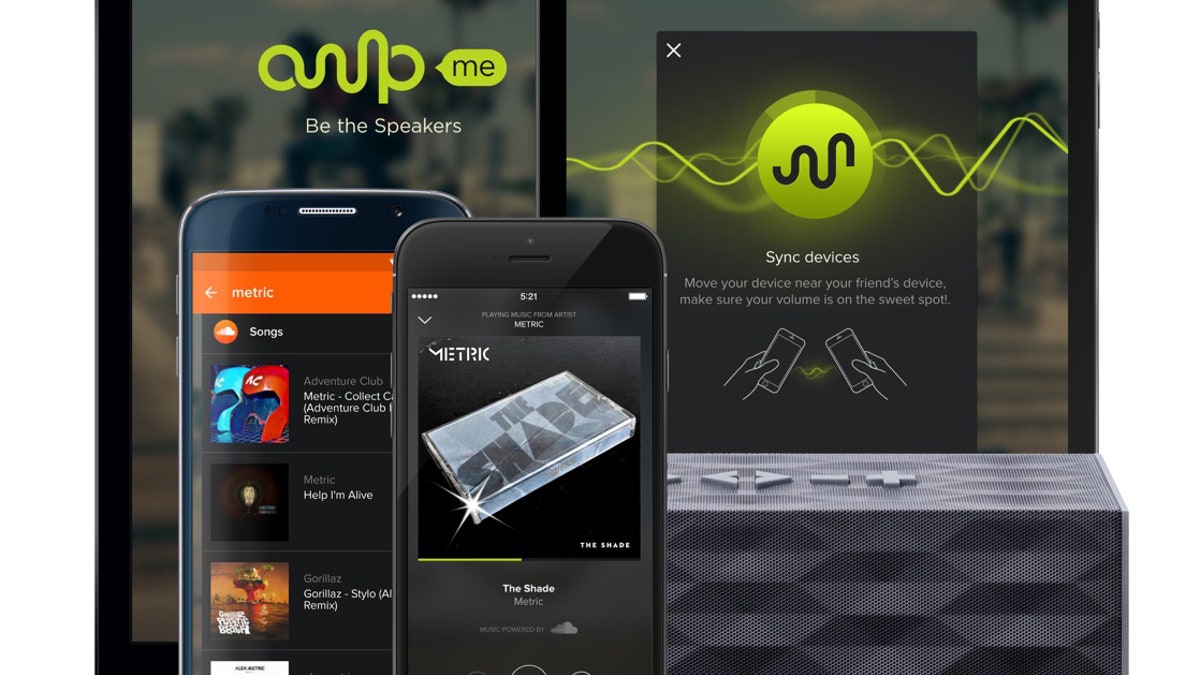
(AmpMe)
One Montreal-based startup wants to give you a portable sound system that you can take to parties, picnics, or only just as far as your living room. On Thursday, AmpMe announced the launch of a new free mobile app that syncs music across smartphones for a communal listening experience. By playing music together through multiple phones, the app is designed to produce that rich speaker-produced sound through iOS and Android-supported phones and tablets.
The idea first came to AmpMe CEO Martin-Luc Archambault when he was visiting a friend’s new apartment. There were about 10 people listening to Spotify, but Archambault acknowledged the sound wasn’t of the best quality.
“At this point, I thought ‘well, we all have speakers in our pockets, what if we just tried to sync our phones together?’ ” Archambault told FoxNews.com.
The process of developing the final product – which works by allowing the user to sync music through the SoundCloud streaming service – took about a year of trial-and-error testing.
So, how does it work? A “host” user controls the SoundCloud playlist, seeking out their favorite tunes or artists. The app does not use Bluetooth technology, but a server-centric audio “fingerprinting” technology that works using a regular cellular data plan or a WiFi network. The lead host hits “play” on the app, and friends join in on the music-sharing experience by entering a four-digit pass code. Syncing begins automatically, with the song playing from each device. The phones have to be near one another in order for the app to work.

(AmpMe)
“When people testing this out first heard it (the sound from the app) they said ‘wow this is crazy, wow I’m really happy about that sound,’ ” Archambault said. “It’s the first app I’ve built that is absolutely useless if you are alone. It needs to be shared communally.”
The communal aspect of the app – with an execution that The Verge called “a little sloppy” – is the selling point behind AmpMe, Archambault asserted.
“Music is emotional,” Archambault added. “As speakers on phones become exponentially better over time — as they get more and more sophisticated in the way that cameras on phones are – it will only further enhance the communities we form around music.”




















